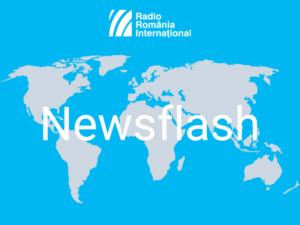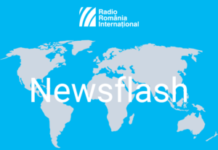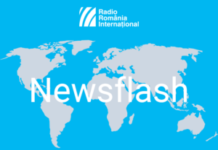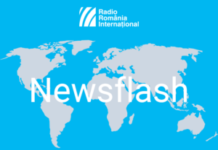NATO – The war that Russia started against Ukraine severely affects the security environment at the Black Sea and in the south-east of Europe, the Romanian PM Nicolae Ciuca said at the end of a meeting of NATO heads of government from south-east Europe, hosted by Sofia, Bulgaria. Europe is now experiencing the most complicated period since WW2, and we need stronger defence and more efficient deterrence, Mr. Ciucǎ added. On the sidelines of the meeting, the Romanian PM discussed with his Bulgarian counterpart Kiril Petkov, about the Bulgaria-Greece interconnector. Another topic was the road and railway infrastructure, in which context the Bulgarian side proposed the construction of 5 bridges over Danube river. In Sofia, the attending heads of government discussed cooperation in the field of security, taking into account NATO’s latest decisions. Another major topic was related to reducing reliance on Russian gas and identifying means to connect the region to natural gas pipelines from Western Europe, particularly via Greece.
UKRAINE – Ukraine’s president Volodymyr Zelensky says his country is ready to discuss neutrality as part of a peace agreement with Russia, as a new round of negotiations is due to begin in Istanbul, Turkey on Tuesday. A meeting between presidents Zelensky and Putin would be counterproductive at this point, Russia’s foreign minister Sergey Lavrov said in his turn. Meanwhile, the losses reported by Ukraine because of the war are in excess of USD 564 billion, the country’s economy minister Yulia Svyrydenko said, according to Reuters. In the field, Russian forces are regrouping but have difficulty advancing into Ukrainian territory. Several Russian units were forced to return to Belarus after experiencing significant losses. The situation remains dramatic in Mariupol, the Sea of Azov port that sees the most violent fighting since the start of the war. The Red Cross announced it was unable to send aid to the city, and requested Russia and Ukraine to secure a humanitarian corridor. According to local authorities, nearly 160,000 civilians are stranded in the city without water, food, medicines and electricity. Russia continues to deny targeting civilians, and blames Ukraine for the repeated failure to secure safe corridors for the locals to leave the region.
SCHOOLS – The number of Ukrainian children enrolled in Romanian schools stands at 1,140, out of a total of nearly 34,000 minors who arrived in Romania fleeing the Russian invasion, the education minister Sorin Cîmpeanu has announced. The Romanian Minister said the majority of Ukrainian school children wish to continue their studies observing the standard curricula taught in Ukrainian schools.
VISIT – There are currently no risks to food safety in Europe. What we do have is inflation, said EU Commissioner for Economy, Paolo Gentiloni, at the end of his meeting in Bucharest with Finance Minister Adrian Câciu. According to the EU official, the war in Ukraine will impact Romania’s estimated 4% economic growth rate this year. Talks between Gentiloni and Câciu also tackled economic measures to address the shocks reported in the supply chain. At the same time, the two officials also discussed the fallout of the war in Ukraine and response measures required to deal with the wave of refugees. Also on Monday, Paolo Gentiloni was received by president Klaus Iohannis. The talks focused primarily on the situation generated by Russia’s aggression in Ukraine, including the economic impact on the EU and its member states, the challenges in handling the refugee waves and the situation in the Republic of Moldova.EU Commissioner for Economy, Paolo Gentiloni, is in Bucharest on Tuesday as well, when he is scheduled to meet other Romanian officials. (AMP)
(Radio Romania International)










